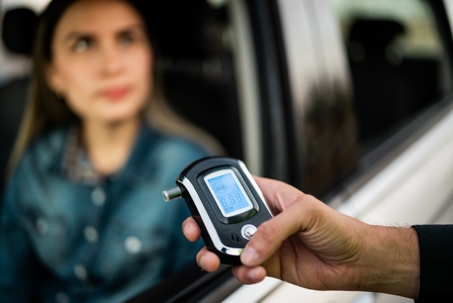Understanding how much you’ve had to drink before getting behind the wheel can feel like guesswork—but could a breathalyzer app really save you from a DUI? In this article, we’re diving into the technology, its limitations, and why nothing replaces sound legal guidance from King Law, P.C..
What Are Breathalyzer Apps?
Breathalyzer apps pair with a small, portable sensor—often via Bluetooth—to estimate your blood alcohol concentration (BAC). After exhaling into the device, the app displays a BAC reading on your smartphone. Popular models claim to give you actionable insights: “You’re under the legal limit” or “Wait another hour.”
The Appeal: Convenience and Cost
Unlike traditional breathalyzers, which can run $100 or more, many app-compatible sensors start under $50. They fit in your pocket, sync to your phone, and offer instant feedback. For casual drinkers, this seems like an easy precautionary tool before hopping in a car.
Accuracy Concerns: Why Readings Can Vary
Despite sleek marketing, breathalyzer apps come with accuracy caveats:
Sensor Quality: Cheaper sensors often use semiconductor sensors, which drift over time and can yield false lows or highs.
Calibration Needs: To stay accurate, sensors require regular calibration—usually every 30 to 60 days. Most users skip this step, rendering the device unreliable.
Environmental Factors: Mouth alcohol from recent drinks, certain mouthwashes, or even minty gum can skew results. Temperature and humidity also impact readings.
Because of these variables, the actual BAC could be higher or lower than what the app displays. Relying on an inaccurate reading could lull you into a false sense of security.
Legal Thresholds: A Moving Target
In Texas, a BAC of 0.08% or higher constitutes a DWI (DUI in other states). But commercial drivers face a 0.04% limit, and drivers under 21 are subject to a zero-tolerance policy. Breathalyzer apps won’t always clarify these jurisdictional nuances—yet an app telling you “under .08” could still put you over the commercial or underage limit.
Beyond Technology: Why Legal Counsel Is Irreplaceable
Even the most sophisticated breathalyzer can’t protect you once you’re pulled over. Law enforcement breath tests use calibrated, court-approved devices, and chemical tests (blood, breath, or urine) are considered the gold standard in court. If you’re arrested, evidence like officer observations, dash-cam footage, and witness statements can outweigh your app’s data.
That’s where King Law, P.C. steps in. Our Lubbock defense attorneys know the ins and outs of DUI cases—from challenging improper traffic stops to scrutinizing calibration logs for police breathalyzers. We’ll review every detail, negotiate for reduced penalties, or fight for dismissal.
Practical Tips to Stay Safe
Use Breathalyzer Apps as a Guide, Not a Guarantee: Treat app results as a rough estimate—never as definitive proof you’re safe to drive.
Plan a Designated Driver or Rideshare: Technology fails, but a sober driver or ride-hailing service never will.
Keep Records: If you are tested, ask for copies of calibration certificates and officer logs. Your attorney may use these in court.
Call for Help Early: If you’re pulled over, invoke your right to legal counsel immediately. Don’t answer questions without your attorney present.
Conclusion
Breathalyzer apps can offer a quick snapshot of your BAC, but they’re no substitute for caution, planning, and expert legal defense. If you find yourself facing a DUI charge, don’t leave your future to chance—or a smartphone reading. Contact King Law, P.C. at (806) 370-7800 for a free consultation and strong advocacy when it matters most.

